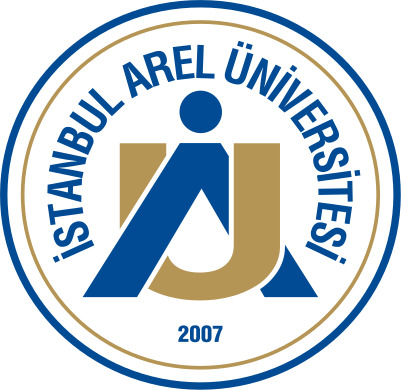Civil Aviation Management
Overview
<!-- wp:paragraph --> <p><strong>Program Description</strong><br><strong>Civil Aviation Management at Istanbul Arel University: Leading the Future of Air Travel</strong></p> <!-- /wp:paragraph --> <!-- wp:paragraph --> <p>The Civil Aviation Management program at Istanbul Arel University is a cutting-edge course designed to provide students with a comprehensive understanding of the aviation industry, preparing them for leadership roles in the management of airlines, airports, and air traffic control. This program combines technical knowledge with business acumen to equip students with the skills required to navigate the complex and dynamic world of civil aviation. With a focus on operational efficiency, regulatory compliance, customer service, and strategic decision-making, the program ensures students are prepared to lead in a fast-paced, global aviation environment.</p> <!-- /wp:paragraph --> <!-- wp:paragraph --> <p><strong>Program Mission and Vision</strong><br>The mission of the Civil Aviation Management program at Istanbul Arel University is to cultivate highly skilled, well-informed professionals who are prepared to manage the various operational, financial, and strategic aspects of the aviation industry. The program aims to produce graduates capable of leading airlines, airports, and aviation service providers, ensuring the efficient, safe, and sustainable growth of air travel worldwide. Its vision is to shape the future of aviation by training leaders who will drive innovation, optimize operations, and maintain the highest standards of safety and service in the industry.</p> <!-- /wp:paragraph --> <!-- wp:paragraph --> <p><strong>Curriculum Structure</strong><br>The Civil Aviation Management program offers a balanced education that includes a mix of theoretical knowledge and practical application in aviation management, business principles, and aviation law. Key areas of the curriculum include:</p> <!-- /wp:paragraph --> <!-- wp:paragraph --> <p><strong>Introduction to Civil Aviation</strong>: Students begin by exploring the structure of the aviation industry, learning about the roles of airlines, airports, regulatory bodies, and the global supply chain. This course sets the foundation for understanding the key components that make up the aviation ecosystem.</p> <!-- /wp:paragraph --> <!-- wp:paragraph --> <p><strong>Aviation Safety and Security Management</strong>: A core aspect of aviation management, this course focuses on the importance of safety regulations, emergency protocols, and the implementation of security measures at airports and on aircraft. Students learn how to ensure compliance with international aviation standards and best practices for safeguarding passengers and cargo.</p> <!-- /wp:paragraph --> <!-- wp:paragraph --> <p><strong>Airline and Airport Operations</strong>: Students study the daily operations of airlines and airports, including flight scheduling, resource management, baggage handling, and customer service. The course also covers operational challenges, from optimizing flight routes to ensuring the smooth functioning of airport facilities.</p> <!-- /wp:paragraph --> <!-- wp:paragraph --> <p><strong>Aviation Economics and Financial Management</strong>: This course covers the financial principles behind airline and airport management, including revenue management, cost control, pricing strategies, and financial planning. Students gain an understanding of how to manage budgets, investments, and profits while ensuring the financial sustainability of aviation organizations.</p> <!-- /wp:paragraph --> <!-- wp:paragraph --> <p><strong>Aviation Law and Regulatory Framework</strong>: Students gain in-depth knowledge of the legal aspects of aviation, including international conventions, safety regulations, air traffic control laws, and aviation ethics. This course prepares students to navigate the legal challenges and compliance requirements of the global aviation industry.</p> <!-- /wp:paragraph --> <!-- wp:paragraph --> <p><strong>Marketing and Customer Service in Aviation</strong>: This course explores strategies for attracting and retaining customers in the competitive aviation market. Students learn about aviation branding, digital marketing, loyalty programs, and how to enhance the passenger experience through excellent customer service practices.</p> <!-- /wp:paragraph --> <!-- wp:paragraph --> <p><strong>Air Traffic Control and Flight Management</strong>: A vital component of aviation management, this course covers the principles of air traffic control, including flight routing, airspace management, and the responsibilities of air traffic controllers. Students learn how to manage air traffic flow, optimize routes, and ensure the safety and efficiency of air travel.</p> <!-- /wp:paragraph --> <!-- wp:paragraph --> <p><strong>Aviation Project Management</strong>: In this course, students learn project management techniques specific to aviation operations, from construction projects at airports to the implementation of new technologies. The course covers risk management, timeline development, resource allocation, and team coordination in aviation projects.</p> <!-- /wp:paragraph --> <!-- wp:paragraph --> <p><strong>Sustainability and Environmental Issues in Aviation</strong>: As the aviation industry faces increasing pressure to reduce its environmental impact, this course addresses sustainable practices and innovations aimed at reducing emissions, optimizing fuel usage, and promoting eco-friendly technologies within aviation management.</p> <!-- /wp:paragraph --> <!-- wp:paragraph --> <p><strong>Leadership and Strategic Management</strong>: Students develop leadership and decision-making skills required for senior roles in aviation organizations. The course focuses on strategic planning, organizational behavior, human resource management, and effective communication for aviation managers.</p> <!-- /wp:paragraph --> <!-- wp:paragraph --> <p><strong>Aviation Technology and Innovations</strong>: With rapid advancements in aviation technologies, this course explores emerging trends such as unmanned aerial vehicles (UAVs), artificial intelligence, digital check-ins, biometrics, and automated systems in airport management. Students learn how these innovations are transforming the industry.</p> <!-- /wp:paragraph --> <!-- wp:paragraph --> <p><strong>Global Aviation and International Business</strong>: This course focuses on the global nature of aviation, including international trade, partnerships, cross-cultural management, and the challenges of operating in multiple countries. Students explore the geopolitical and economic factors that impact global aviation operations.</p> <!-- /wp:paragraph --> <!-- wp:paragraph --> <p><strong>Capstone Project and Internship</strong>: The program culminates in a capstone project where students apply their knowledge to a real-world aviation management problem. In addition, students are required to complete an internship at an airport, airline, or aviation-related organization, gaining valuable hands-on experience and industry exposure.</p> <!-- /wp:paragraph --> <!-- wp:paragraph --> <p><strong>State-of-the-Art Facilities and Technology</strong><br>Istanbul Arel University provides students with access to cutting-edge facilities, including aviation simulation labs, dedicated classrooms, and interactive learning tools. These resources enable students to experience real-world aviation management scenarios, practice their skills, and engage with the latest technologies that are shaping the future of aviation.</p> <!-- /wp:paragraph --> <!-- wp:paragraph --> <p><strong>Emphasis on Industry Collaboration and Networking</strong><br>The Civil Aviation Management program emphasizes industry collaboration through partnerships with leading airlines, airports, and aviation companies. Students have opportunities to interact with industry professionals, attend aviation conferences, participate in workshops, and engage in networking events to gain insights and build connections in the field.</p> <!-- /wp:paragraph --> <!-- wp:paragraph --> <p><strong>Career Opportunities</strong><br>Graduates of Istanbul Arel University’s Civil Aviation Management program are well-equipped to pursue a variety of high-level careers within the aviation industry. Career opportunities include roles as airport managers, airline operations directors, flight operations managers, aviation safety officers, air traffic controllers, aviation consultants, and customer service managers. Graduates can work for commercial airlines, airports, aviation consultancy firms, government agencies, or international organizations involved in the regulation and development of air travel.</p> <!-- /wp:paragraph --> <!-- wp:paragraph --> <p><strong>Shaping the Future of Aviation Leadership</strong><br>Istanbul Arel University’s Civil Aviation Management program offers students the knowledge, skills, and practical experience needed to become effective leaders in the aviation industry. With a strong emphasis on safety, sustainability, operational excellence, and customer service, the program prepares graduates to manage and innovate in the fast-paced and global aviation sector. Students are empowered to contribute to the growth and transformation of air travel, ensuring a future of efficient, safe, and sustainable aviation practices.</p> <!-- /wp:paragraph -->
Program Description
The Civil Aviation Management program at İstanbul Arel University offers a comprehensive curriculum designed to prepare students for successful careers in this dynamic field. The program combines theoretical knowledge with practical skills, ensuring graduates are ready for the challenges of the industry.
The program is taught by experienced faculty members who are leaders in their respective fields, providing students with insights into current industry practices and future trends.
Curriculum Highlights
- Advanced Research Methods: Learn cutting-edge research techniques and methodologies.
- Industry Analysis: Explore current industry trends and develop analytical skills.
- Leadership and Management: Develop essential leadership skills for managing teams and projects.
- Innovation and Entrepreneurship: Cultivate creative thinking and entrepreneurial mindset.
- Digital Transformation: Understand how technology is reshaping industries and businesses.
- Sustainable Development: Explore environmentally sustainable practices and their implementation.
- Global Markets: Study international market dynamics and global business operations.
- Technology Integration: Learn to leverage technology for improved business outcomes.
Requirements:
- Bachelor's degree (for Master's programs) or equivalent qualifications.
- Proven English language proficiency (IELTS 6.5+ or equivalent).
- Complete transcripts from previous education.
- A compelling letter of motivation explaining your interest in the program.
- Two letters of recommendation from academic or professional references.
- Valid passport with appropriate visa status or eligibility.
Benefits:
- World-class faculty with extensive industry experience.
- Modern campus facilities and cutting-edge learning environments.
- Strong industry partnerships providing networking opportunities.
- Internship opportunities with leading companies in the field.
- Comprehensive career services including job placement assistance.
- Access to a global alumni network for lifelong professional connections.
Begin your educational journey today.
Apply now and take the first step towards your future.






